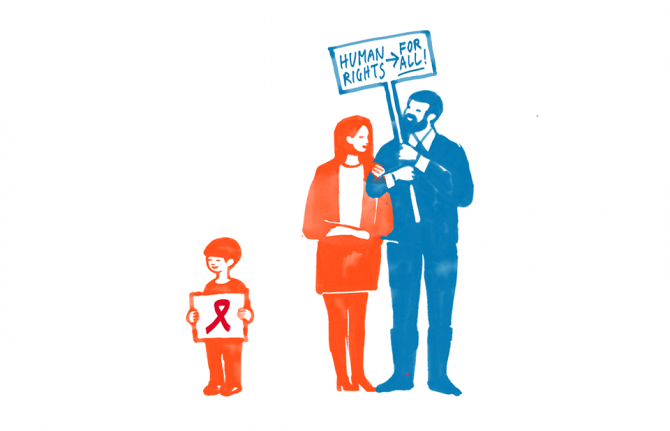

Press Statement
UNAIDS welcomes the recent decision of the government of the Republic of Kazakhstan to remove the remaining legal barriers for people living with HIV to adopt children
07 December 2022 07 December 2022The 2020 Kazakhstan Code on Public Health and Health Care System guaranteed the right of people living with HIV to adopt children. However, certain bylaw regulations remained that created barriers for people living with HIV to enjoy the right to adopt children. On 1 December 2022, the day the world commemorated World AIDS Day, the Ministry of Health removed this remaining barrier.
UNADS welcomes this progressive action as reaffirmation of Kazakhstan’s continuing commitment to eliminate stigma and discrimination against people living with and affected by HIV.
UNAIDS Country Director in Kazakhstan Gabriela IONASCU said, “Living with HIV is no longer seen as an impediment to adopting and raising children. By excluding HIV from the list of diseases that prevent people from adopting children or becoming guardians or foster parents, Kazakhstan is taking bold steps to advance in the right direction: ensuring human rights for all, including for people living with HIV.”
It furthermore underlines Kazakhstan’s commitment to guaranteeing human rights for all leaving no one behind, including activities under the framework of the Global Partnership for Action to Eliminate All Forms of HIV-Related Stigma and Discrimination which the Republic of Kazakhstan joined in 2021 among 30 other pilot countries.
“Similar changes in legislation were made in other eastern European and central Asian countries, including the Kyrgyz Republic, the Republic of Moldova, the Russian Federation, and Ukraine. UNAIDS reaffirms its commitment to provide technical assistance and expert support to advance progress to end AIDS in Kazakhstan and support all people living with and affected by HIV across the region,” said Eamonn Murphy, UNAIDS Deputy Executive Director and Regional Director for Eastern Europe and Central Asia
Note: The decree of the Ministry of Health of The Republic of Kazakhstan
UNAIDS
The Joint United Nations Programme on HIV/AIDS (UNAIDS) leads and inspires the world to achieve its shared vision of zero new HIV infections, zero discrimination and zero AIDS-related deaths. UNAIDS unites the efforts of 11 UN organizations—UNHCR, UNICEF, WFP, UNDP, UNFPA, UNODC, UN Women, ILO, UNESCO, WHO and the World Bank—and works closely with global and national partners towards ending the AIDS epidemic by 2030 as part of the Sustainable Development Goals. Learn more at unaids.org and connect with us on Facebook, Twitter, Instagram and YouTube.
